Why does your child’s breath smell so bad? Is bad breath a sign of illness? Here in this article, you will find the answers to your questions
Bad breath is the common experience that both adults and children will face as soon as they woke up in the morning. It will go away after brushing. But sometimes, this bad breath will stay for the whole day and may avoid your child from speaking/playing with his friends. This type of bad breath needs immediate attention to prevent the teeth from the risk of decay or infections.
This article discusses the symptoms and reasons for the bad breath in children. It presents the15 natural remedies for bad breath in children.
What is Bad Breath in Child?

Bad breath, commonly known as halitosis. Most of the children have bad or unusual breath when they wake up in the morning, which usually goes away after brushing teeth, eating, or drinking. This kind of bad breath is not a serious issue.
What Causes A Child To Have Bad Breath?
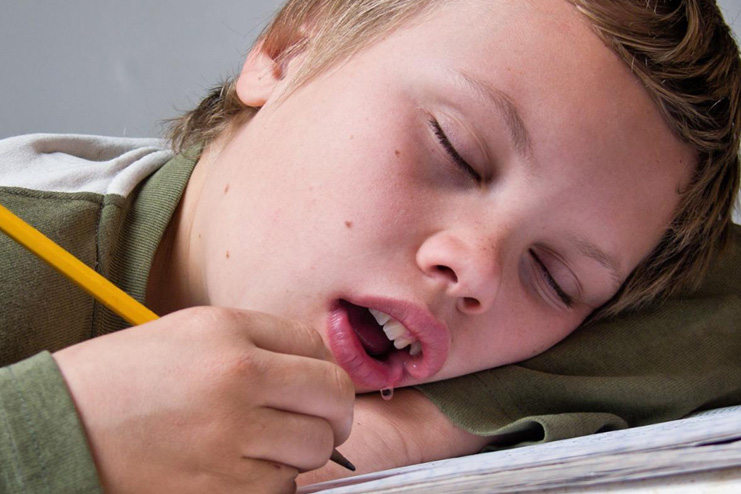
Oral Causes of Bad Breath:
Here are the few reasons for bad breath in children due to oral problems like:
1. Lack of Dental Hygiene:
If your children fail to keep their mouth and teeth clean by brushing regularly, it may lead to various problems like:
- Dental cavities
- Gingivitis
- Periodontal diseases
- Bad breath
2. Food Habits:
Some food habits like eating sugar and acidic foods regularly may make your child susceptible to dental diseases. Eating certain foods such as onions, garlic, and spices also lead to bad breath in your child. These foods reach the bloodstream after digestion, which is carried to the lungs finally affecting the breath.
When you eat bits of food might be caught in the gaps between your teeth. Bacteria grow on the bits of food and release bad odor sulfur compounds.
3. Oral Issues:
Even regular brushing habits sometimes can not help to get rid of bad breath as brushing is not sufficient to deal with tooth decay and oral infections. Infections of the mouth secrete bad odored scent.
If your kids have tooth decay or any kind of oral infections, it is time to visit your dentist. Using kid-specific toothpaste can help in preventing the infection from spreading but brushing alone can’t heal the infection or decay. Bad breath is also caused by surgical wounds in the mouth that exist after oral surgery.
4. Dry Mouth:
Saliva helps in the cleaning of the mouth by removing the bad odored particles. A condition called xerostomia decreases the production of the saliva resulting in the drying of the mouth and bad breath. Dry mouth usually happens in the sleep and may get worse if your child sleeps with the mouth open.
5. Medicines:
Some medicines indirectly cause bad breath by making the mouth dry. Others release chemicals when swallowed and broken, which are carried through breath making it smell bad.
Nasal Causes of Bad Breath:
Other causes of bad breath in a young child include nasal problems like:
1. Runny nose
3. Nasal obstructions (Foreign objects like – bead or piece of food stuck up in the nose)
Signs or Symptoms of Bad Breath in Children:
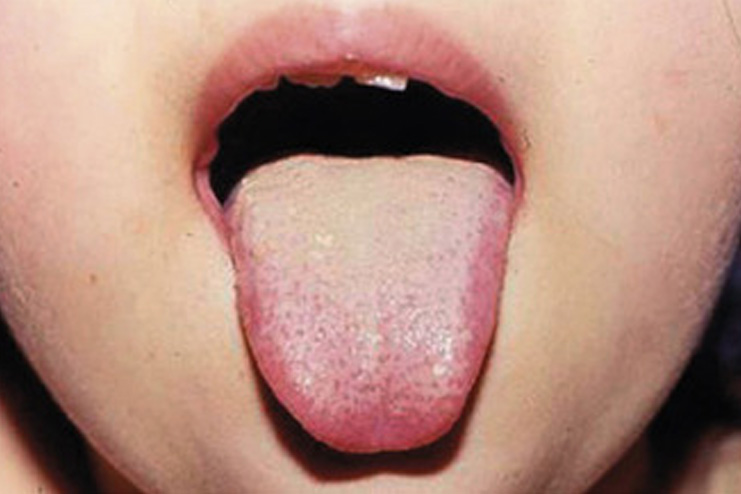
Here are the few signs and symptoms of bad breath in a child:
- Unpleasant smell coming from the mouth
- Dry mouth
- The coating on the tongue
- Sour taste or changes in the taste
Home Remedies To Get Rid of Bad Breath in Child:
If the bad breath is recognized at the early stage, it is easy to treat with natural remedies for bad breath in children.
1. Parsley:
 Parsley is often used for garnishing. It contains many important nutrients, antioxidants, and compounds that fight against cancer.
Parsley is often used for garnishing. It contains many important nutrients, antioxidants, and compounds that fight against cancer.
How To Use:
Its fresh scent and chlorophyll content make it the best choice to deal with bad breath. To treat the bad breath chew the fresh parsley leaves after each meal.
2. Warm Salt Water Rinse:
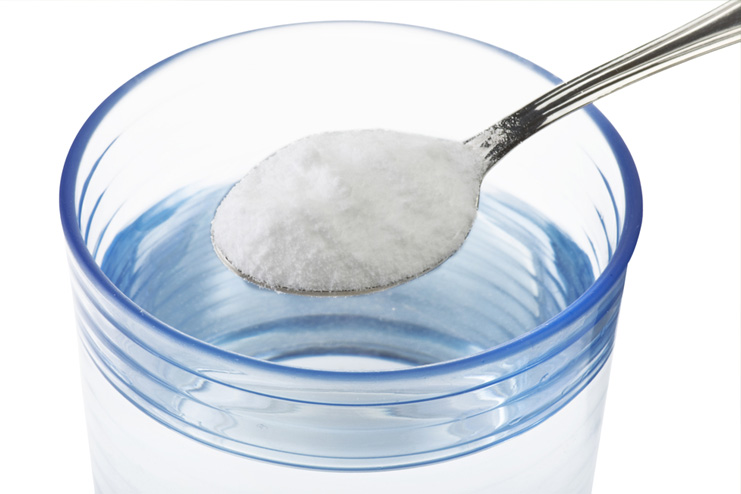
Slight acidic nature of the saltwater prevents the build-up of bacteria in the mouth or throat. Saltwater prevents the alkalizing environment and obstructs the growth of microbes leading to bad breath.
3. Yogurt:
 Daily use of yogurt is known to keep the breath fresh. 6 ounces of yogurt consumption daily reduces the production of odor-causing substances like hydrogen sulfide.
Daily use of yogurt is known to keep the breath fresh. 6 ounces of yogurt consumption daily reduces the production of odor-causing substances like hydrogen sulfide.
How To Use:
To avoid bad breath in your child, serve plain and non-fat yogurt at least once a day.
4. Zinc:

Zinc reduces the levels of sulfurous compounds causing bad breath.
How To Use:
Use kids friendly zinc mouthwash and chewing gums to treat bad breath in your child.
5. Milk:
 Milk is rich in calcium and strengthens the muscles. Milk works well to avoid garlic and peanut butter smell only from the breath.
Milk is rich in calcium and strengthens the muscles. Milk works well to avoid garlic and peanut butter smell only from the breath.
Note: It is recommended to drink a glass of low-fat milk only after taking the meal containing strong smell foods like ginger. In other cases, amino acids in the milk are fed up by the naturally occurring bacteria on the mouth resulting in the foul and unattractive smell.
6. Cinnamon Chewing Sticks:
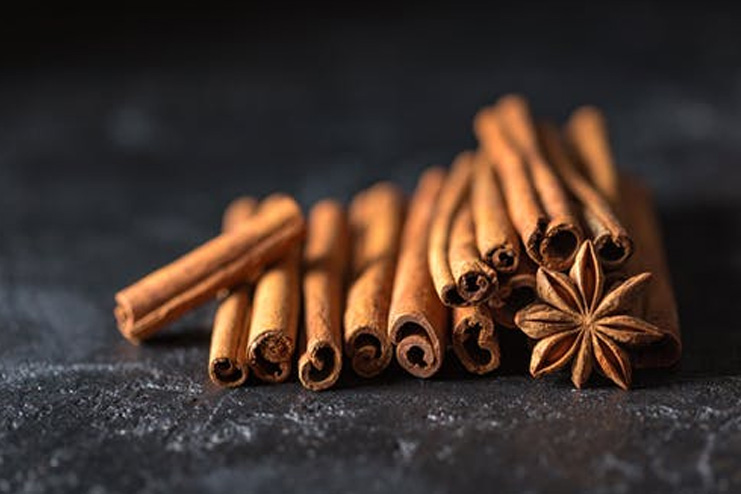 Cinnamon sticks help in treating the bad breath as they release essential oils when chewed which kills the bacteria and enhances the saliva flow in the mouth. Cinnamon is also known to offer digestive and respiratory benefits.
Cinnamon sticks help in treating the bad breath as they release essential oils when chewed which kills the bacteria and enhances the saliva flow in the mouth. Cinnamon is also known to offer digestive and respiratory benefits.
7. Fennel or Anise Seeds:
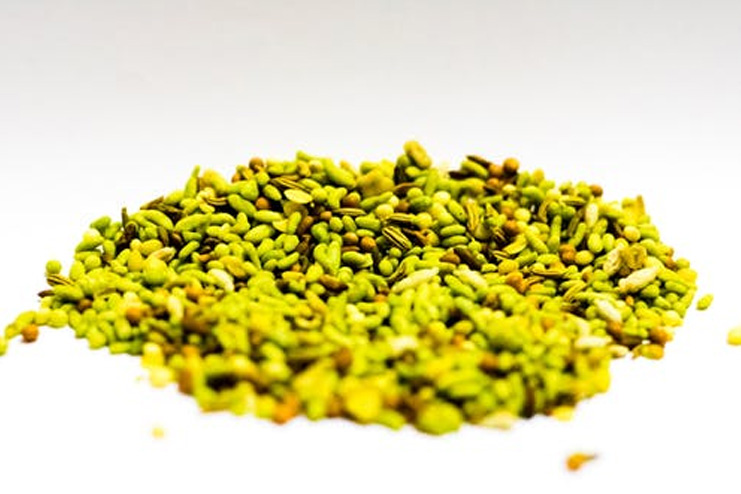 Fennel seeds stimulate the saliva flow thereby cleaning the bacteria in the mouth. They contain aromatic essential oils which add florescence to the breath when chewed
Fennel seeds stimulate the saliva flow thereby cleaning the bacteria in the mouth. They contain aromatic essential oils which add florescence to the breath when chewed
8. Cucumber:
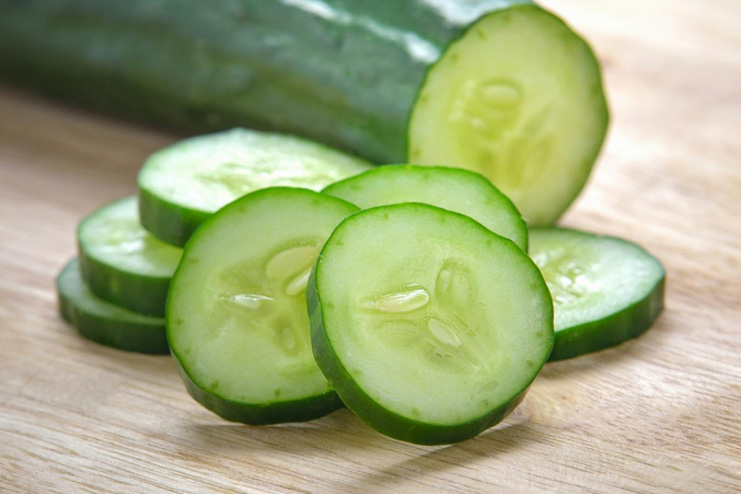
Cucumber is known to promote hydration and to lose belly fat. It will help to eliminate the bad breath instantly.
Place a slice of cucumber on the tongue and press it against the roof of your mouth. This process stimulates the flow of saliva and flushes out foul odored bacteria.
9. Oranges:
 Oranges are rich in vitamin C and have many health benefits. Eating vitamin C foods produces more saliva which helps in cleaning the bacteria in the mouth. Oranges help to combat gum diseases.
Oranges are rich in vitamin C and have many health benefits. Eating vitamin C foods produces more saliva which helps in cleaning the bacteria in the mouth. Oranges help to combat gum diseases.
10. Green Tea:
 Green tea is best known to reduce the belly. With the disinfectant and deodorizing properties, green tea is known to treat bad breath. If your child is unable to drink the green bitter tasty green tea add some honey for the flavor.
Green tea is best known to reduce the belly. With the disinfectant and deodorizing properties, green tea is known to treat bad breath. If your child is unable to drink the green bitter tasty green tea add some honey for the flavor.
11. Apples:
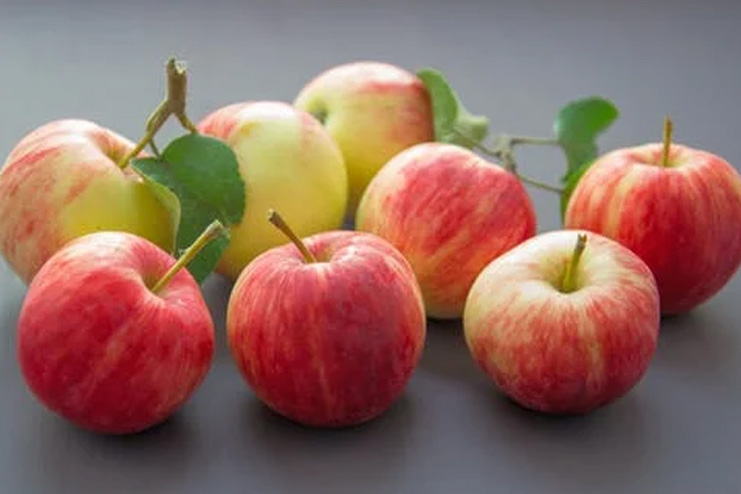 Apple offers many health benefits. It is also used to treat bad breath. When chewed, it releases more saliva helps in flushing out the foul-smelling bacteria.
Apple offers many health benefits. It is also used to treat bad breath. When chewed, it releases more saliva helps in flushing out the foul-smelling bacteria.
12. Aloe Vera:
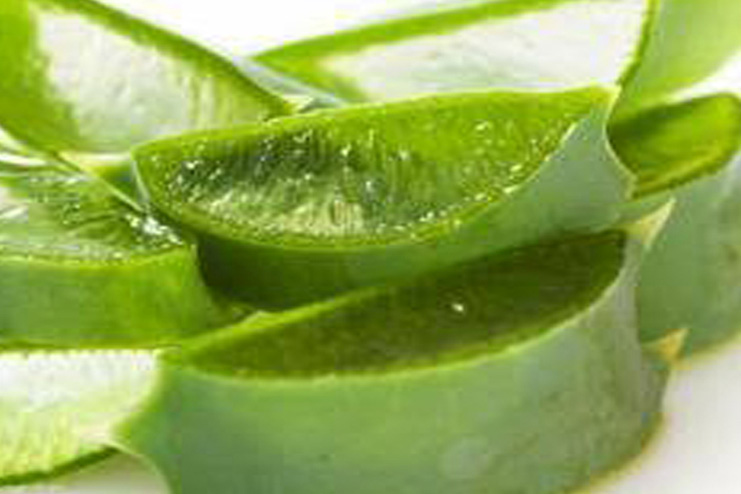
An anti-inflammatory substance called b-sitosterol present in the aloe vera helps to calm down the indigestion acid, which is the main reason for the bad breath.
How To Use:
Dissolve a quarter cup of pure aloe vera gel in half a cup of water and give it to your child. Make sure to check with the pediatrician before introducing any new food to your child.
13. Essential Oils:

Many people use essential oils to scent their homes. They are also best known to treat many skin allergies. Here are the few essential oils to treat your bad breath.
a) Peppermint Essential Oil:
Mix 1-2 drops of essential oil with water and try gargling the mouth with this mixture for about 30 seconds to eliminate the bacteria.
b) Lemon Grass Essential Oil:
It is best known to be used in aromatherapy. It is used to relieve headaches and reduce indigestion. Mix 1-2 drops of lemongrass essential oil with cup of water. Start gargling your mouth with this solution for 30 seconds and spit it out.
14. Vinegar:

Vinegar contains acetic acid which prevents bacterial growth. Add 2 tablespoon of vinegar in a glass full of water and gargle this for about 30 seconds before spitting out.
15. Baking Soda:
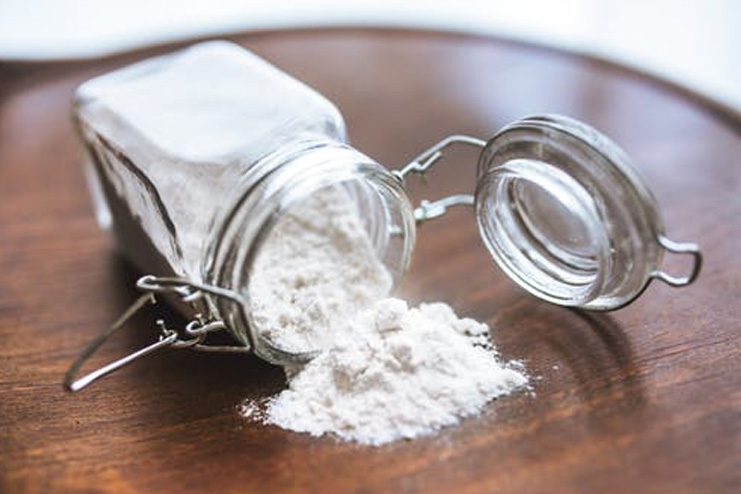 Baking soda, which is also known as sodium bicarbonate is very effective in killing the bacteria in the mouth.
Baking soda, which is also known as sodium bicarbonate is very effective in killing the bacteria in the mouth.
How To Use:
In order to prepare the baking soda mouth wash, add 2 teaspoons of baking soda to 1 cup of warm water and gargle the mouth for about 30 seconds and then spit it out.
Tips To Prevent Bad Breath:
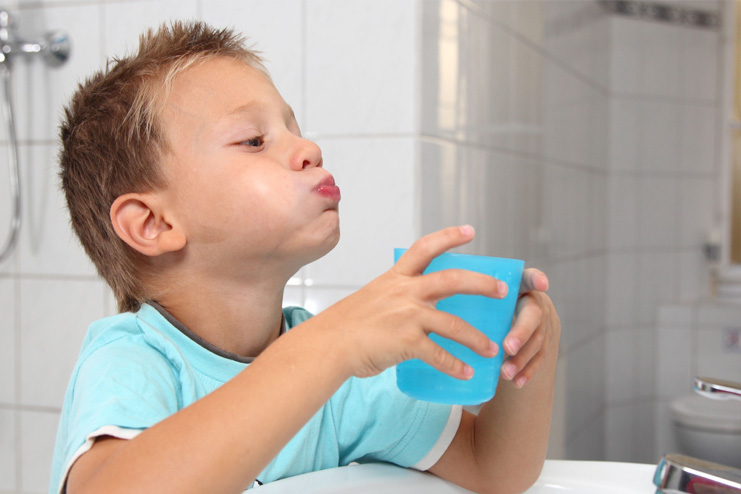
Here are the few tips to prevent bad breath.
1. Brush Regularly:
Brush your teeth twice a day and floss at least once a day to clean the trapped food. Do not roughly brush your teeth, you may wear out the enamel of the teeth making it more vulnerable to decay.
2. Rinse Mouth:
Choose a kid-friendly minty flavored mouthwash to get rid of bacteria. Rinse your mouth properly with the best mouthwash to combat bad breath.
3. Scrape Tongue:
The white-colored coating that forms on the tongue hosts the bacteria. Most of the kids skip scraping their tongues. Make sure that your kid scrapes tongue gently each time they brush.
4. Moisten Mouth:
Tooth decay results from the dry mouth. If your kid has dry mouth, make them to drink plenty of water during the day. Use a humidifier in your kid’s room to moisten the air in the room.
5. Avoid Foods Causing Souring Breath:
Avoid eating onions and garlic. Brushing after eating them can not help out to eliminate the bad breath. As they reach the bloodstream once digested and travel through the lungs causing bad breath.
6. Prevent Oxygen Deprivation:
Our bodies are not designed to breathe through the mouth, they are designed to breathe through the nose. Breathing through the mouth pulls cold and dry air to the lungs. Through mouth breathing a lower amount of oxygen is delivered to your body.
Mouth breathing reduces the saliva flow in the mouth and results in the deposit of unwanted microbiota into your mouth and throat. Most of the children breathe through the mouth while they sleep, this results in a bad breath when they wake up in the morning.
Use a strip to close the mouth and to make sure that your kid breaths with the nose. Practise Nose breathing exercises.
Exercise to Prevent Mouth Breathing in Your Kid:
Nose Breathing Exercise:
Ask your kid to hold the tongue to the mouth roof and behind the front teeth. Allow your kid to breathe through the nose rising the belly. Breath in for 3 seconds and exhale for 4 seconds and repeat this activity for 2-3 times daily
When To See A Doctor For Bad Breath in Child:
If your child’s breath prevails even after following the hygiene lifestyle habits like brushing, using dental floss, and home remedies to prevent bad breath. See your dentist, in the cause of any serious root causes he may refer you to the ENT specialist.
High carotene levels may lead to bad breath. When carotene levels are too excessive they may lead to a severe health condition known as diabetes.
Bad breath may keep your child away from social activities and makes them susceptible to teasing. The bad breath needs to be treated well before it imparts its adverse affects on the physical and emotional health of the child. The best 15 home remedies to prevent bad breath in children are presented in this article.







































